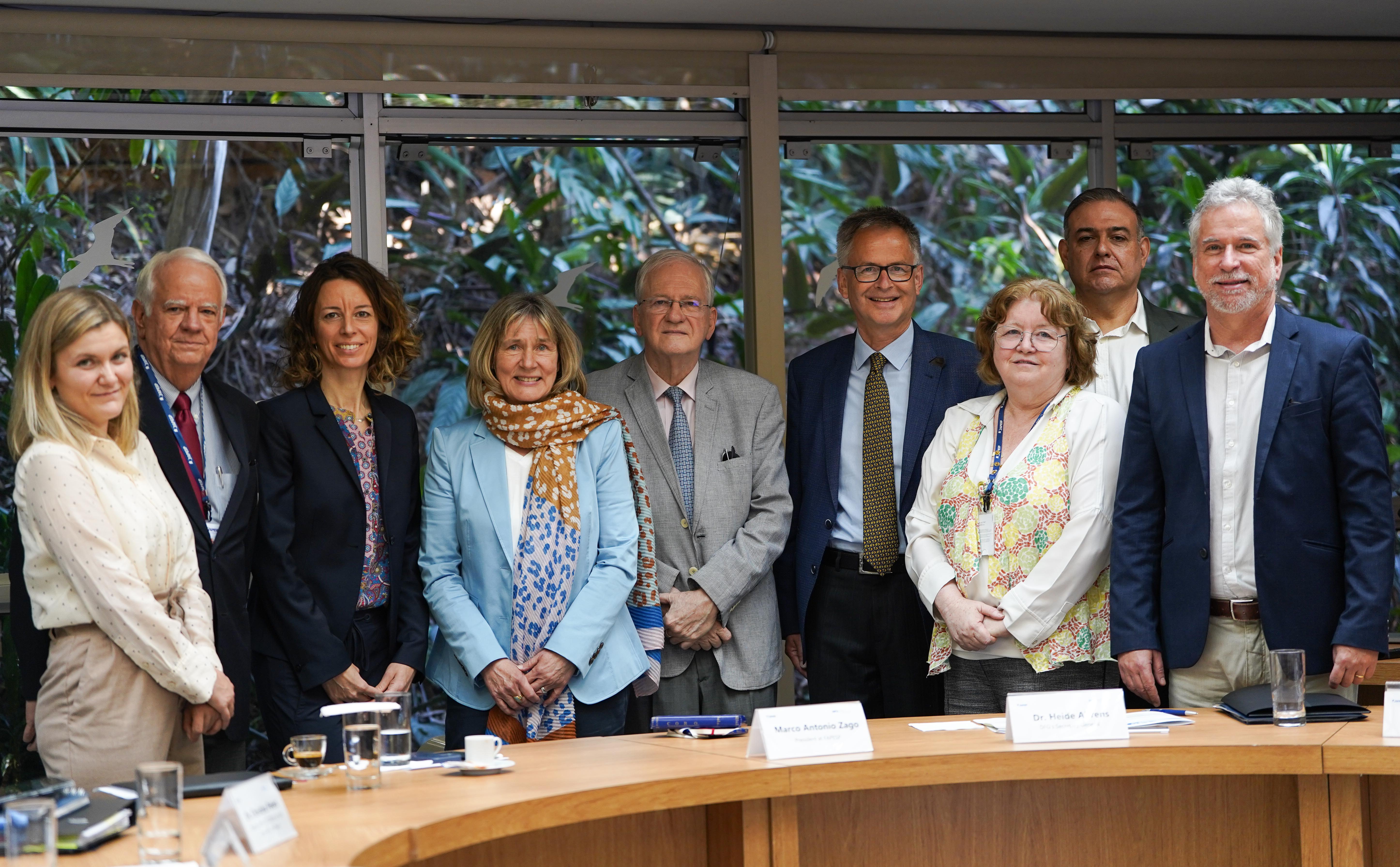


The meeting took place on June 17 at FAPESP (photo: Daniel Antônio/Agência FAPESP)
Published on 07/01/2024
By Maria Fernanda Ziegler | Agência FAPESP – Leaders of FAPESP met with representatives of the German Research Foundation (DFG) on June 17 to discuss ways of increasing research collaboration. The meeting took place at FAPESP’s headquarters in São Paulo city. The participants shared experiences in connection with measures to cut red tape and the use of artificial intelligence to appoint selection committees and design programs. They also discussed preparations for FAPESP Week Berlin 2025.
“DFG is one of our main partners. We’ve been collaborators for more than 20 years. We work well together, and I hope this will continue for a long time. We currently have research partnerships in all knowledge areas, in terms of both individual funding and coordinated funding programs,” Marco Antonio Zago, President of FAPESP, said during the meeting.
Both institutions also have substantial experience over a long period in producing material for policymaking bodies in a wide array of knowledge areas.
Marcio de Castro Silva Filho, FAPESP’s Scientific Director, highlighted the activities of the 28 Science for Development Centers (CCDs) funded by FAPESP. Their remit is to connect researchers at universities and research institutions with public administrators and corporate executives for the purpose of collaborating on mission- and problem-oriented projects with social or economic relevance for São Paulo state.
Another topic discussed at the meeting was the importance of the Engineering Research Centers (ERCs)/Applied Research Centers (ARCs), which involve partnerships with private enterprise and have achieved major advances in several fields, such as biodiversity, bioenergy, climate change, drug development, and oil and gas.
Exchange of experiences
The meeting also saw an exchange of experiences in recent changes at both institutions as they strive to reduce bureaucracy and use artificial intelligence in connection with the submission and assessment of proposals.
“The aspects of simplification in procedures and processes under discussion are basically the same here as in Germany. Use of artificial intelligence is also an important insight FAPESP has brought us,” said Heide Ahrens, Secretary General of DFG.
The participants also discussed FAPESP Week Berlin, scheduled for April 2025. The event will gather researchers from São Paulo and Germany for academic sessions and presentations on scientific results relevant to both regions, with the aim of stimulating research collaboration. DFG will organize the event in partnership with FAPESP.
Other representatives of DFG at the meeting included Lisa-Marie Frühauf, assistant to the Secretary General; Christina Peters, Head of the Office for Latin America in São Paulo; Dietrich Halm, Head of Cooperation with Latin America; Cíntia Toth, Program Manager at the Office for Latin America in São Paulo; and Raquel Nascimento, Program Officer at the Office for Latin America in São Paulo. Besides Zago and Castro Silva, FAPESP was represented by Concepta McManus, the Scientific Directorate’s Manager of Research Collaboration; Raul Machado Neto, advisor to the President; and Alexandre Roccatto, the Scientific Directorate’s Coordinator of Programs.
Source: https://agencia.fapesp.br/52099